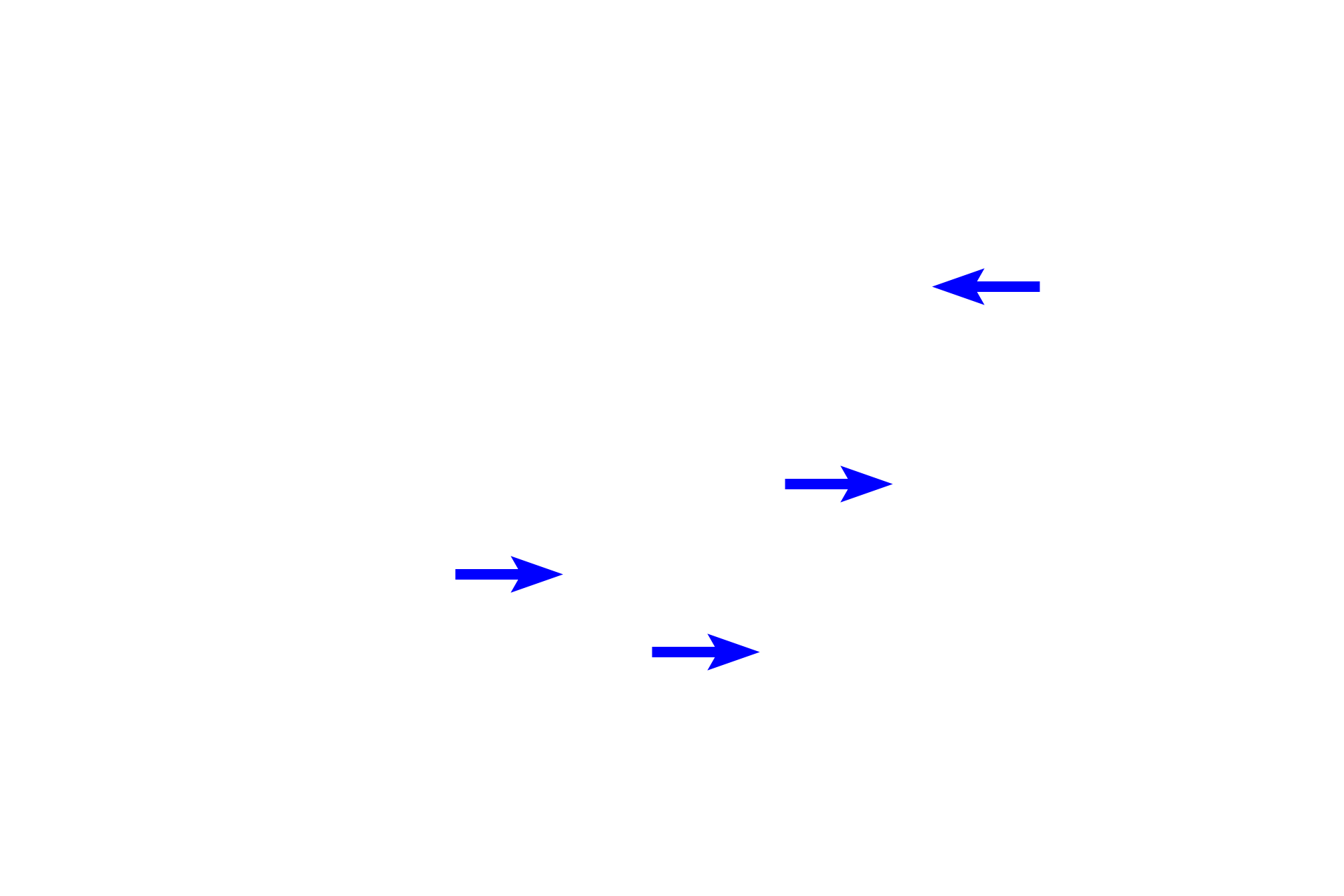
Modes of secretion: merocrine
Exocrine glands release their secretory products by one of three modes of secretion, merocrine, apocrine or holocrine. These pancreatic acinar cells utilize the merocrine mode of secretion. During this process, enzyme-containing secretory granules accumulate at the apex of the cell, fuse with the plasma membrane and discharge their contents by exocytosis into the lumen. No extra-granular cellular contents are lost. 1200x

Acini
Exocrine glands release their secretory products by one of three modes of secretion, merocrine, apocrine or holocrine. These pancreatic acinar cells utilize the merocrine mode of secretion. During this process, enzyme-containing secretory granules accumulate at the apex of the cell, fuse with the plasma membrane and discharge their contents by exocytosis into the lumen. No extra-granular cellular contents are lost. 1200x

- Acinar cells
Exocrine glands release their secretory products by one of three modes of secretion, merocrine, apocrine or holocrine. These pancreatic acinar cells utilize the merocrine mode of secretion. During this process, enzyme-containing secretory granules accumulate at the apex of the cell, fuse with the plasma membrane and discharge their contents by exocytosis into the lumen. No extra-granular cellular contents are lost. 1200x

-- Nuclei
Exocrine glands release their secretory products by one of three modes of secretion, merocrine, apocrine or holocrine. These pancreatic acinar cells utilize the merocrine mode of secretion. During this process, enzyme-containing secretory granules accumulate at the apex of the cell, fuse with the plasma membrane and discharge their contents by exocytosis into the lumen. No extra-granular cellular contents are lost. 1200x

-- RER
Exocrine glands release their secretory products by one of three modes of secretion, merocrine, apocrine or holocrine. These pancreatic acinar cells utilize the merocrine mode of secretion. During this process, enzyme-containing secretory granules accumulate at the apex of the cell, fuse with the plasma membrane and discharge their contents by exocytosis into the lumen. No extra-granular cellular contents are lost. 1200x

-- Secretory granules
Exocrine glands release their secretory products by one of three modes of secretion, merocrine, apocrine or holocrine. These pancreatic acinar cells utilize the merocrine mode of secretion. During this process, enzyme-containing secretory granules accumulate at the apex of the cell, fuse with the plasma membrane and discharge their contents by exocytosis into the lumen. No extra-granular cellular contents are lost. 1200x
 PREVIOUS
PREVIOUS